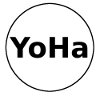- Wasted
- Plastic Raft
- Wrecked
- Database Addiction
- Endless War
- Evil Media Distribution Centre
- Invisible Airs
- Coal Fired Computers
- Database Documentry
- Aluminium
- Lungs
- MF2012
- Requiem for Cod

Take Back Your Tongue

Talking dirty: introduces the critical yet playful tool of our tongues as a site of inquiry.
The tongue is a site with which to explore multiple scales of biopower, governability of everyday life that flows through the geographies of the Thames Estuary. Our (collective) tongue is a disruptive technology that will provide guide through the anthropogenic changes happening all around us. Food has widened its scope recently to become a conditioning environment shaping both physical and social spaces, food happens at a cultural, technical and biological level simultaneously. The tongue's is implicated in the processes of gentrification, levering urban areas into comfortable zones for middle class habitation, performing mechanisms for cultural policing, and coercing poorer communities to leave.
Sticking your tongue into wetlands, marshes and estuaries allows you to taste the extraordinarily bioproductive of carbon storage and lap up valuable fish nurseries. Tonguing the estuary also lets us become aware of how heavily modified (and populated) environments are today, 7 out of the 10 biggest cities are located at reach of waterways, wetlands or estuaries, the question is how does it taste.
Shockingly, the the UN have not declared an international year either of Wetlands or Estuaries (since 1959-60)--the ocean is its closest representative. The Ramsar Convention (formerly the Convention on Wetlands of International Importance, especially as Waterfowl Habitat) was signed in 1971 in Ramsar, Iran, and databases the relevant worldwide wetlands. The UK is recognised with the highest number of Ramsar sites (148)

Historically, wetlands were regarded as wastelands, inhabitable areas and an obstacle to modernisation. Much effort has been directed into wetland drainage and reclamation (such as cord-grass--spartina anglica: hibrid of the S. maritima (european native) and S. alterniflora (US) in order to transform them into arable land. In opposition of this official version Commoners highly regarded wetlands, bogs and estuaries for providing reeds for building, thatching and basket making, bogs for pre-industrial energy, and more importantly for fishing and fowling. It was the self-subsistence economy and the lack of taxes and revenue provision to distant landowners, including the church and the crown, what gave them this image.
Wetlands have been key in contesting the global geopolical scene, as in the South East Anatolia Project, where the Turkish government agenda choke Tigris river water in order to flood and destroy kurdish landscapes and cultural heritage. Or the pre-Bush Iraqui government who saw the marshes of Madan or Marsh Arabs as refuge for bandits, smugglers and Shi'te rebels. The Mudhif, or guesthouse being a landmark or Madan architecture.
I disagree with Graham when he says the worst has already happened in the Thames Estuary. Violence is customary conceived as immediate action in time, explosive, spectacular. It should be an eruption of instant visibility. I look to engage with a different kind of violence; one that is incremental and accretive. Its consequences are calamitous, and are played out in a range of temporal scales. With these recipes I want to engage throughout the summer with the (non)representational, the narratives and relative invisibility of these violence.
Play with your tongue.
 bnr#74 => Smoking and eating the flowers of the Thames 2014
bnr#74 => Smoking and eating the flowers of the Thames 2014